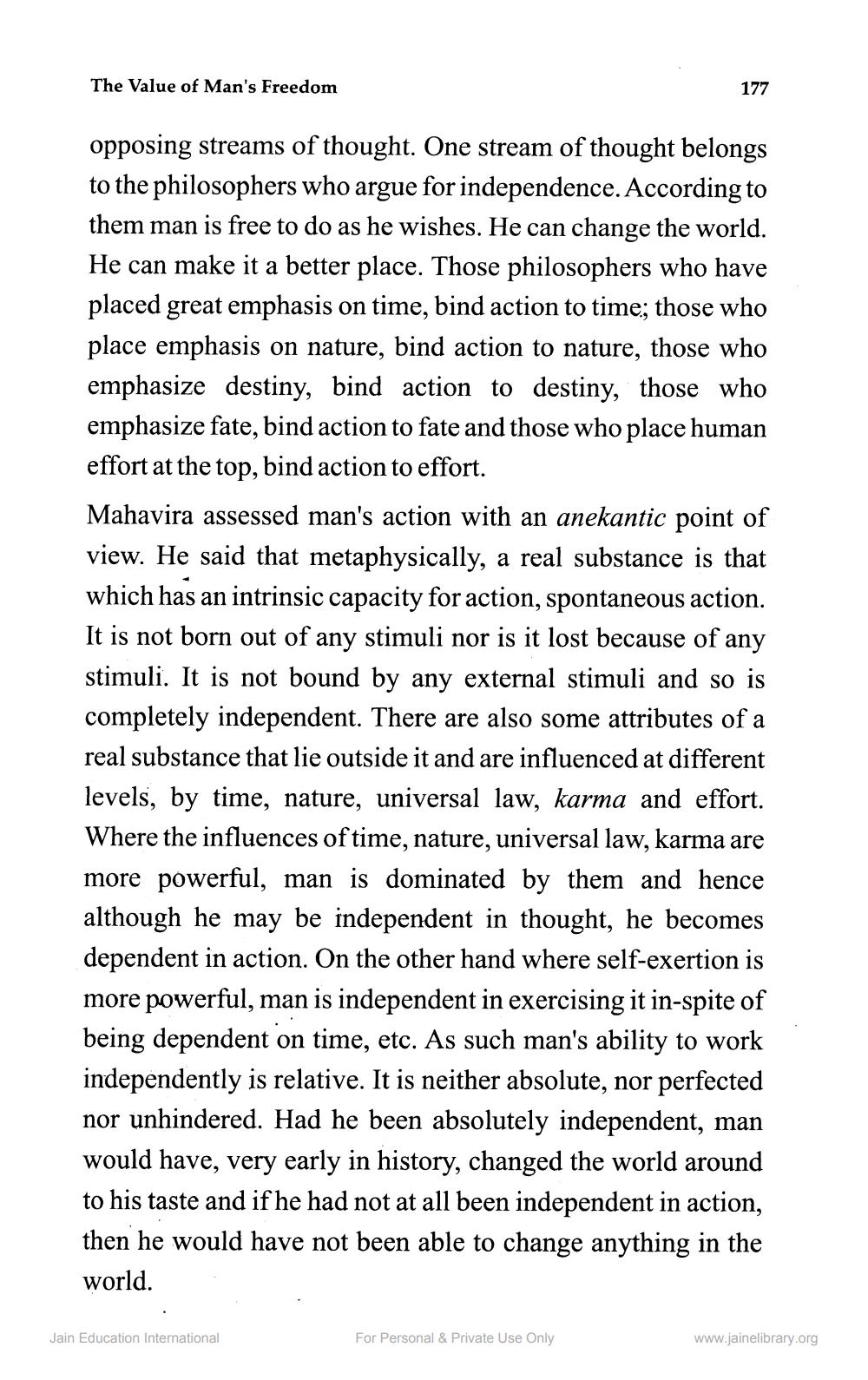________________
The Value of Man's Freedom
177
opposing streams of thought. One stream of thought belongs to the philosophers who argue for independence. According to them man is free to do as he wishes. He can change the world. He can make it a better place. Those philosophers who have placed great emphasis on time, bind action to time; those who place emphasis on nature, bind action to nature, those who emphasize destiny, bind action to destiny, those who emphasize fate, bind action to fate and those who place human effort at the top, bind action to effort. Mahavira assessed man's action with an anekantic point of view. He said that metaphysically, a real substance is that which has an intrinsic capacity for action, spontaneous action. It is not born out of any stimuli nor is it lost because of any stimuli. It is not bound by any external stimuli and so is completely independent. There are also some attributes of a real substance that lie outside it and are influenced at different levels, by time, nature, universal law, karma and effort. Where the influences of time, nature, universal law, karma are more powerful, man is dominated by them and hence although he may be independent in thought, he becomes dependent in action. On the other hand where self-exertion is more powerful, man is independent in exercising it in-spite of being dependent on time, etc. As such man's ability to work independently is relative. It is neither absolute, nor perfected nor unhindered. Had he been absolutely independent, man would have, very early in history, changed the world around to his taste and if he had not at all been independent in action, then he would have not been able to change anything in the world.
Jain Education International
For Personal & Private Use Only
www.jainelibrary.org




